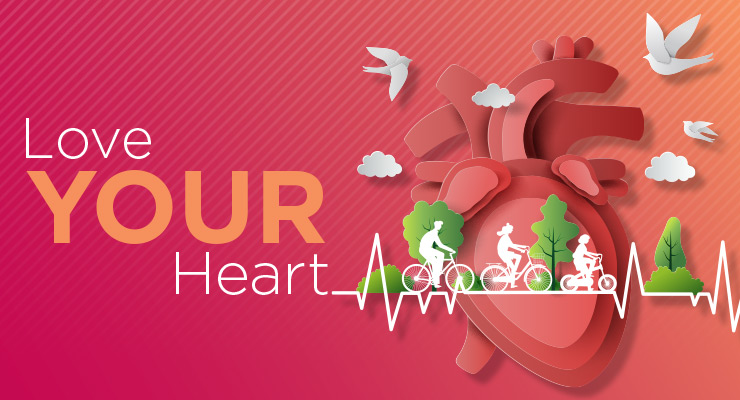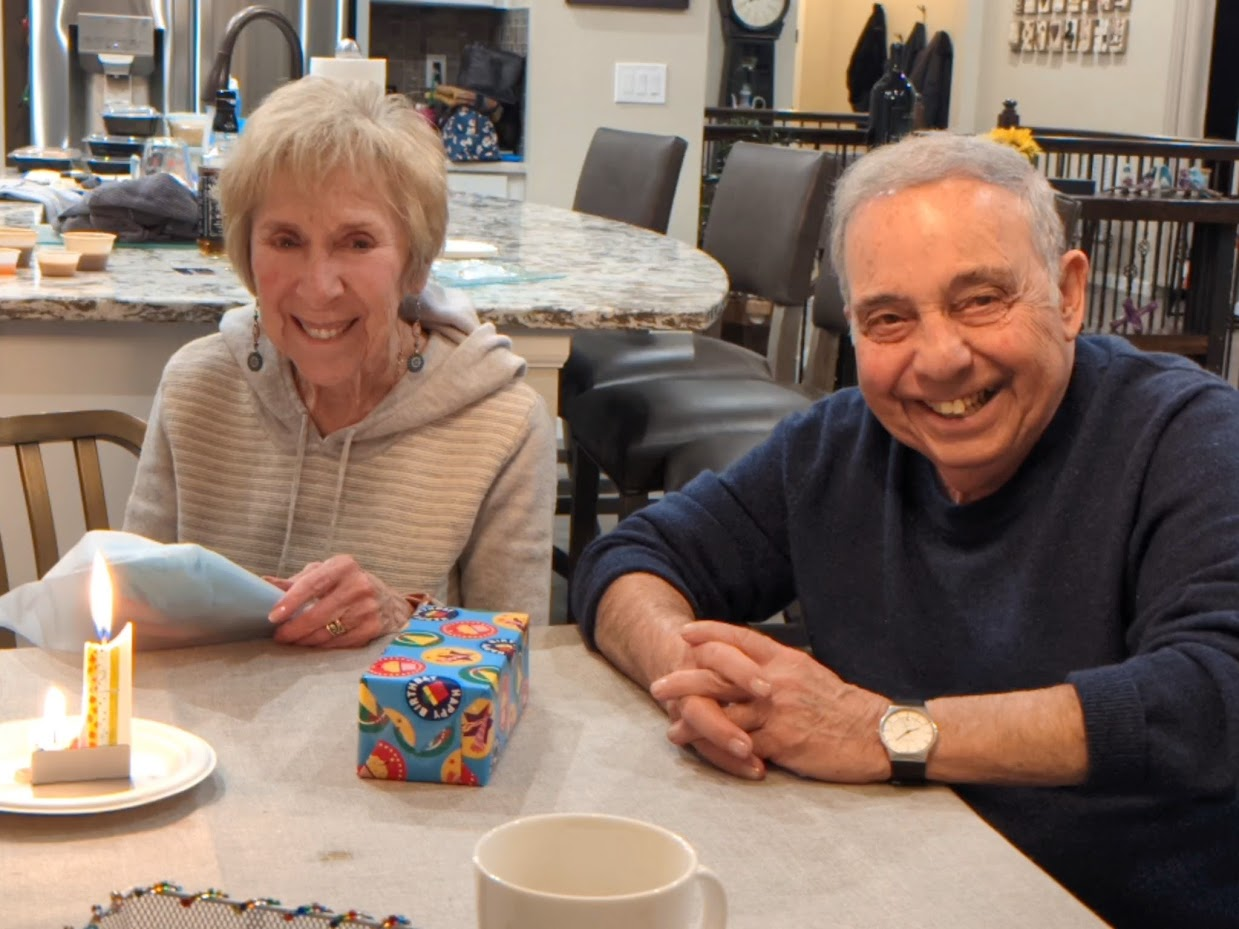Should I get a HeartScan to test for plaque?
- Category: General, Cardiology, Foundation
- Posted On:
- Written By: Boulder Community Health

Boulder Heart interventional cardiologist Jamie Doucet, MD has the answer
For five years, Leonard and Nancie Velick have generously donated funds to provide discounted HeartScans during February. The Velicks are once again honoring Dr. Jamie Doucet—one of Boulder Community Health’s most skilled cardiologists—with this special gift during American Heart Month.
 Leonard says it is because of Dr. Doucet and a HeartScan in the early 2000s that he is alive and able to give back to his community. “Leonard was having stress tests every year. He exercised routinely, and he played tennis every day,” says Dr. Doucet. “He was in good shape, but he smoked.”
Leonard says it is because of Dr. Doucet and a HeartScan in the early 2000s that he is alive and able to give back to his community. “Leonard was having stress tests every year. He exercised routinely, and he played tennis every day,” says Dr. Doucet. “He was in good shape, but he smoked.”
At Dr. Doucet’s request, Leonard had a HeartScan – which measures the calcium (plaque) level in your coronary arteries. Leonard’s score on the scan was extremely high and it revealed he was at an elevated risk for a cardiovascular event, such as a stroke or heart attack.
“After the HeartScan, we found that Leonard had critical triple vessel coronary artery disease (CAD),” says Dr. Doucet, an interventional cardiologist since 1999. “Within weeks, Leonard had coronary bypass surgery. We found that his yearly stress tests were luring both him and us as his physicians into a false sense of security about his heart circulation.”
“Leonard and Nancie’s willingness to offer half-price HeartScans even one time is amazing, but they keep coming back to help the community, and now it’s year five,” says Dr. Doucet. “We’re offering this test, hopefully, for people who wouldn’t otherwise get the test because of the expense, and it not being covered by insurance.”
Help us build on Leonard and Nancie Velick’s legacy by donating to the HeartScan Program through the BCH Foundation. This preventative community resource saves lives and helps improve our patients’ quality of life. Join the BCH Foundation and the Velicks in ensuring that this program can serve the community for years to come.
To celebrate five years of BCH’s HeartScan program with grateful patients Leonard and Nancie Velick, we sat down with Dr. Doucet to learn more about why HeartScans can detect early signs of heart disease, before symptoms develop. He also talked about his love for working in critical care medicine and why all Americans need to know the true risk of heart disease.
Q&A with Dr. Doucet
Q: What is a HeartScan?
A: A coronary calcium scan, also known as coronary artery calcium (CAC) scoring or a HeartScan, is noninvasive and uses Xray based technology – like a regular CT scan – to render the heart immobile with a single breath hold. With the speed of the imaging machine, it is like taking a picture of someone sliding into base in baseball. The resolution of the machine can examine the vessel wall of the arteries that go to the heart muscle and identify if there is evidence of calcification (plaque) in the coronary arteries. If calcification appears in the artery, then that means someone has coronary artery disease (CAD) for all intents and purposes. Because in a perfect world, you should have no calcification in the wall of your arteries.
The higher a patient’s calcium score, especially as indexed for age and gender, the more likely plaque could be problematic.
When the calcium score is high, the likelihood of coronary obstruction is higher. We can use the score that we obtain from the test as a surrogate for those who may be at greater risk for a blockage.
Q: HeartScans are typically not covered by insurance. In what types of situations do you think the scans are most beneficial?
A: The test is valuable when a patient has some risk factors - like family history, extra weight, raised blood pressure or borderline elevations in cholesterol levels – and their primary care provider (PCP) is not sure whether to prescribe statins (cholesterol-lowering drugs) or only stick with diet and exercise recommendations.
As a heart doctor, when giving patients advice on things that they can do to reduce their risk of heart attack and stroke, I like to know if they have the disease that is associated with those events. The best test, if you have risk factors for heart disease, and you’re over 50 years old, and you have absolutely no symptoms - that’s no chest discomfort, shortness of breath, decline in exercise tolerance, fatigue, or nausea or vomiting with activity – then the data is clear that a HeartScan is a better test for that individual than a stress test.
Q: If a patient receives a high score on a HeartScan, what is the course of action?
A: With today’s technologies, if a coronary calcium score is high and a patient is asymptomatic, then I may do a CT Coronary Angiogram, a noninvasive way to look at blood flow and see if the plaque is causing a blockage. Or we do a functional stress test to see how the patient’s heart performs with an exercise load.
If a patient does have coronary disease, I can then get much better compliance with my recommended medical regimen. If a patient knows the importance of keeping cholesterol and blood pressure low with medication, they will continue to take the meds, even with minor side effects. Because if the calcium score is above the 50th percentile, then those patients should be managed with medication, in addition to diet and exercise.
Q: Many patients might be more familiar with a stress test than a HeartScan. What are some notable differences?
A: I love HeartScans for asymptomatic patients because the test is more predictive of risk than a normal stress test. If a stress test is abnormal for an asymptomatic patient, it could just as likely be a false abnormal test. The HeartScan provides a clearer path.
Somebody will pass a stress test until there’s a 70 percent or greater blockage in the heart artery. Stress tests are the tried-and-true method to look for the worst of the worst plaque cases.
We don’t want to start treating heart disease with a 70 percent blockage, because that means a patient needs to see an interventional cardiologist like me or a bypass surgeon to fix the blood flow to the heart muscle.
Q: Why did you choose to specialize in interventional cardiology?
A: When I was in medical school, I knew I wanted to work in critical care medicine. I found myself gravitating to hearts. Your heart is your motor. I like to do things with my hands, and interventional cardiology is the hands-on procedural-based part of heart care. The first time I saw someone have a heart attack in 1989, the patient was brought to the Cath Lab, and the interventional cardiologist found the blockage.
As an experienced cardiologist, I realize the more I know about hearts, the more I don’t know. As a young doctor, you can be fooled into thinking you understand everything that can be known about hearts. But then you realize the complexity of individual biological systems.
Q: More than half of Americans (51%) do not know that heart disease is the leading cause of death for men and women. Heart disease has been the #1 killer for more than a century. Why is this lack of knowledge and awareness potentially deadly?
A: Heart disease is the number one killer, and it is by far the most important – preventable – cause of death.
For women, if you look at cancer compared to heart disease, taking all forms of cancer into account, the risk of dying of cancer is less than half it is of heart disease.
Q: What advice do you have for reducing the risk of heart disease?
A: The most important thing that I can tell you is this: Everyone gets a colonoscopy to look for polyps – a precursor to the most common form of colon cancer. I think of a HeartScan as the colonoscopy of cardiology. If you have heart disease, especially if the disease is building up at a greater rate than the average man or woman, acting on that with your care team is crucial in reducing risk.
Is plaque buildup putting you at risk for a heart attack?
The $117 HeartScans are available for adults ages 50 and over on a limited basis while supplies last at three BCH locations: Foothills Hospital in Boulder, the Community Medical Center in Lafayette and Erie Medical Center.
Scheduling is a two-step process:
Step 1
Purchase your discounted scan by visiting MDSave.com, then search for "Cardiac CT Calcium Scoring."
Step 2
Call 303-415-5170 to schedule. Mention "BCH HEART2024" and that you purchased the scan via MDSave.
BCH HeartScans are reviewed by board-certified radiologists, and a written report is mailed within 48 hours. If your scan indicates a problem, a radiologist will call you or your physician.